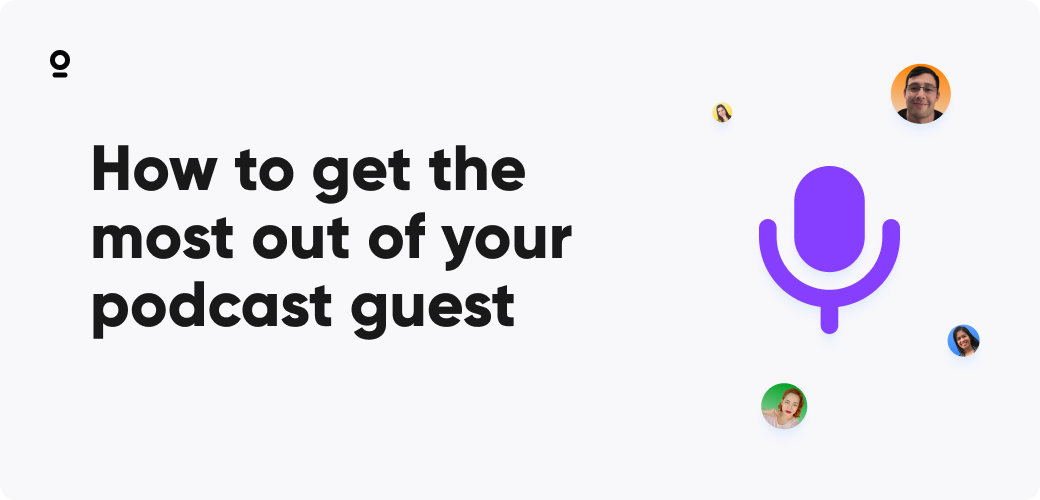Having guests on your show is a great way to provide your audience with some variety. Guests can add real value, providing additional experience and insights that you might not have yourself.
Guests are a great way to produce more content and a more interesting show. But you need to figure out your own management process, or it can be a lot of work.
So, here's what you need to know if you're wondering how to get the most out of your podcast guest:
How to get the most out of your podcast guests
Your exact guest management process might look a little different than the one we have laid out. But if you're looking to build your own, here's where you'll want to get started:
1. Find the right guests for your audience
When selecting a guest for your podcast, it is important to think about what you want to achieve with the show. Do you want to learn more about a specific topic? Are you looking for advice from an expert? Or do you just want to have a good laugh?
Just because a prospective guest has a big audience, or simply wants to be on your podcast doesn't necessarily make them right for your show.
Not only does your podcast guest need to be of interest to your audience, but you want to make sure they also:
Will serve your audience
Be entertaining and/or enjoyable for them to listen to
Be aligned with your show's mission and values
Having the wrong podcast guest on your show could mean that you lose trust with your audience members. If that trust is gone, they might not come back for the next episode!
Once you've found the right guest, it's time to send them a quick email — simply explain who you are, a bit about your show, and why you believe they'd be a good guest.
While template emails can be helpful when you're reaching out to guests, it's important that you get to know your prospective guests and personalize anything that you send their way.
2. Get a release form signed
After you've found the right guest and have a "yes" from them, it's important that you get a podcast guest release form signed before you do anything else.
While some podcasters operate without them, it's a simple and easy solution that can help protect you and your podcast. Without one, you're actually limited on what you can do with the audio recording.
That's not to say that hosts don't edit and publish episodes without having one signed. But they could have to make modifications or take a full episode down if the guest changes their mind later on.
3. Send a pre-interview questionnaire
Pre-interview questionnaires can help you get the most out of your guests.
While it might sound like an overly formal part of the process that only the big shows do, there is real value in this step. A questionnaire can:
Give your guest an opportunity to tell you what they do and don't want to talk about
Allow them to outline specific areas of their expertise or passion topics
Help you get information (like phone number, address, or anything else you might need) so you can contact them afterward
Give you an opportunity to provide you with social media channels, websites, and other relevant information
Ultimately, the pre-questionnaire can make both your interview prep and the interview a whole lot easier.
4. Share recording instructions and expectations
When the release form is signed, the recording session is booked, and the pre-interview questionnaire is filled out, it's time to confirm everything and provide additional instructions.
This is an opportunity for you to give them detailed information about how, technically speaking, the interview will be conducted. This is especially important if you are interviewing someone who is not familiar with podcasting.
You want to provide your guest with:
A link to where you will be recording the episode (assuming you are recording online)
Technical instructions on how to attend and participate in the recording
What equipment will help get the best interview (headphones, microphone)
Other expectations that you might have for recording
This email is also a good opportunity to provide a list of questions or an interview outline to your guest.
Some podcasters argue that they don't do this because they want their recording to be "spontaneous." But providing this information beforehand gives your guest an opportunity to prepare, and can often end up in a better interview.
Whether you do this or not is up to you as the host. However, if your guest asks it would be best practice to provide them with information.
5. Send a reminder email
You have one more guest-related job that needs to be done prior to your interview, and that is sending a reminder email.
A standard email can be set up to be sent out automatically. However, you want to ensure that you double-check the date, time, and guest information before it goes out. This is also a good opportunity to reiterate interview instructions and expectations.
It's important that this email isn't sent too close to the interview (for example, five minutes before is much too close), but you don't want to send it too far away either.
Sometime within the 24-hours leading up to the interview is the time frame you'll want to stick with. If the recording is in the afternoon or evening, the morning is a great time. Likewise, if your interview is in the morning, the night before is a good time to send it.
6. Give them an overview before you start
Before you hit the record button, you want to take a few moments to reiterate the process. This can include, but isn't limited to:
How you will introduce them, and whether or not you will do it while they are there
How long the interview will take
How long do you expect the final episode to be
Whether or not your podcast is explicit (probably not relevant in all situations, but worth the mention)
You also want to make sure that you give your guest the opportunity to ask any questions they may have. You want to make sure that you outright ask them if they have questions, not simply imply it.
7. Do a quick review when you're done
When the interview is done, before you hang up the call, you want to do a quick check-in with your guest.
Let them know what the process is going forward — when can they expect to hear from you? Will you let them know when the episode is going up? Give them the details they need to understand the process.
Finally, reiterate to them how they can get a hold of you if they need to.
8. Send a thank you note with an expected timeline
While it's certainly not mandatory, sometime within the next 24-to-48 hours you want to send your guest a follow-up email thanking them for coming on your show.
It's a good idea to use that email to reiterate the timeline that they can expect the episode to be published. You can also let them know that you'd love to feature them on your show in the future (if that's true).
9. Send link and marketing materials
When it's time to publish your episode — either right before or after — you want to send your guest an email. This email should include:
Direct link to the episode
A link to any social media posts published about it
Any marketing materials that they can use to promote the show
While this is often enough to get them to share the show. However, if you haven't seen anything it's OK to follow up in a week or two.
It's important that you don't assume just because they came on your show that they'll share your podcast. While, in most cases, guests are willing to share an episode that features them — you need to make sure to provide them with the information they need to do it. Make it as easy as possible for them.
Bonus: Send a gift!
One of the classiest things that podcasters (who have the budget) can do is send a small token of their gratitude to their guests. This doesn't have to be big — nor does it have to cost a ton of money.
Anything from an e- or physical card to a small donation to a charity in their name can go a long way to making your guest's experience great. This can help you stand out from the rest of the crowd. But it's important to note that you don't have to do this!
Having guests on your show
Inviting guests on your podcast can be a real benefit to your audience, so long as their topic is relevant. They offer another perspective, along with different knowledge and experiences that your audience could benefit from.
But having them on your show does mean a little extra work.
Nothing in this process is mandatory, and you should find a way to cover what you need to do that works for you. It's your show, your episode, and your guest. So, make it your own.



